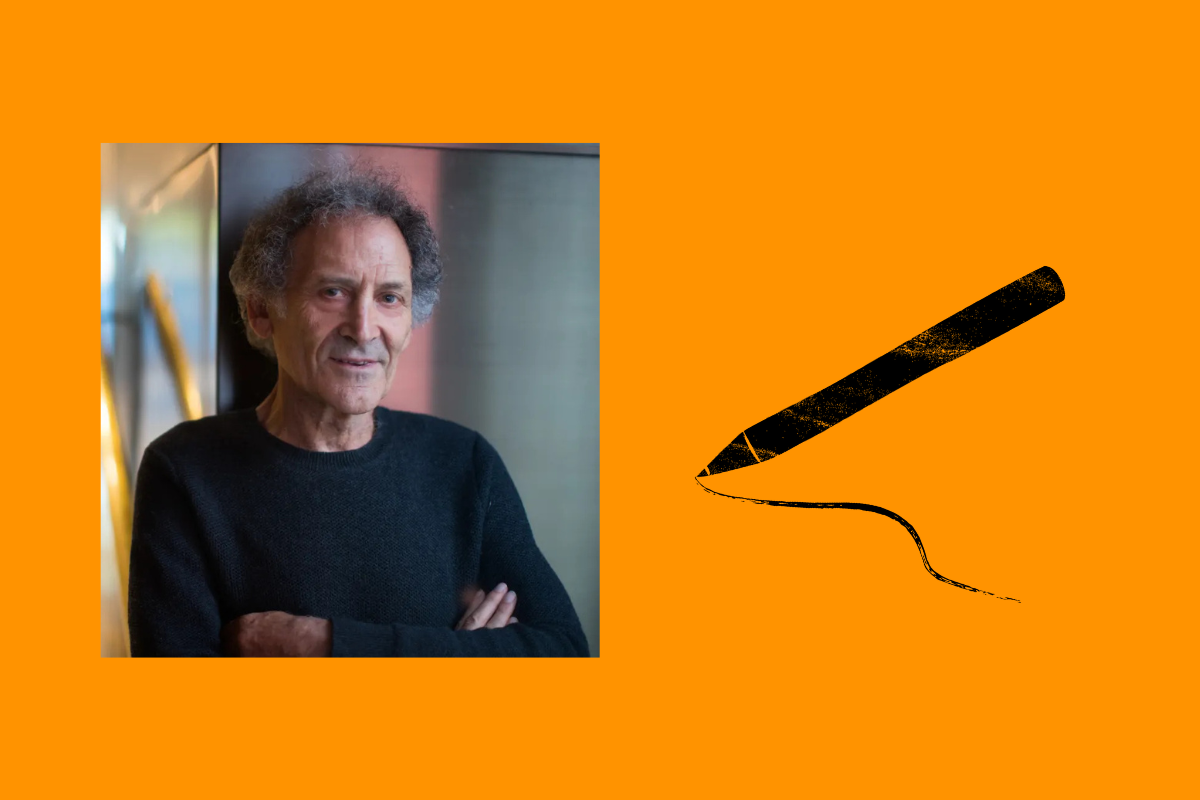Published: 20 July 2020
Last updated: 5 March 2024
AUSTRALIA’S HIGHEST-PROFILE BOOK publisher, Louise Adler, picks winners. Her time at Melbourne University Publishing (MUP) saw multiple commercial hits: from underworld figure Mick Gatto’s I, Mick Gatto to Louise Milligan's breakthrough book on George Pell, Cardinal. Several years ago, when workshopping new book ideas with friend and writer, Michael Gawenda, she floated the idea of a biography on an Australian tax lawyer.
Doesn’t sound like a commercial success, does it?
But Mark Leibler is no ordinary tax lawyer. Political lobbyist; diplomatic intermediary; confidant of Prime Ministers and, of latter years, a champion of indigenous rights. Few Australian Jews have wielded the influence that Mark Leibler has for nearly half a century. Even fewer can arrange a meeting with the head of Mossad.
At the age of 76, Leibler is chairman of the formidable Australia Israel Jewish Affairs Council (AIJAC) and heads one of Australia’s most profitable law firms, Arnold Bloch Leibler (ABL). An impressive figure – no doubt. But a biography?
Gawenda was originally cold on the idea., “I thought I've got no interest in writing a biography of Mark Leibler. I know him by reputation, nothing more. Why would I do this?” he explains.
Like Leibler (and Adler), Gawenda is Jewish. Only four years separate them. But unlike Leibler, who is a product of Mizrachi – Melbourne’s religious Zionist organisation – Gawenda grew up in the avowedly non-Zionist Yiddish-speaking Bund. His parents were socialists; textile workers who supported the Australian Labor Party. He neither went to a Jewish day school nor a shul.
Gawenda discussed Adler’s idea at length with others. He mulled over it. Then something turned.
[gallery columns="2" size="large" ids="36891,36892"]
Writing about Leibler presented two unique opportunities: Firstly, Gawenda says: “It was an opportunity for me to examine both my experience as a Jew in this community and the experience of someone else who was totally different than me. A chance to look at my community with fresh eyes.” Secondly, it would enable him to “examine the way power and influence work in Australia”.
With those thoughts in mind, he agreed. A publishing contract was initially drawn up with MUP and later Monash University Press (who eventually became publishers).
Securing the involvement of Leibler, however, was difficult. He was not supportive.
“It took some time,” Gawenda says. “I think Jeremy convinced him to do this.”
Jeremy Leibler, the youngest of Mark’s four children, is also a lawyer, a partner at ABL and the president of the Zionist Federation of Australia (ZFA, the organisation his father led for a decade).
Isi was a far more volatile leader than the Mark, made many more enemies. Mark was much shrewder in many ways, just as ruthless, but shrewder – much more lawyer than Isi.
Jeremy invited Gawenda into the boardroom of ABL’s grand offices in Collins Street, Melbourne. The two discussed the project over several meetings. Mark was notably absent.
Instead, Jeremy and his father’s proposed biographer established “the ground rules” and reached an agreement: Gawenda could gain access to Mark’s vast and voluminous papers which stretch over many decades. He could access Mark for interviews too. And Gawenda could also interview anyone he wished – without interference.
“I did say to them, it would be very important, if you're giving me that access, that you don't tell people not to talk to me,” Gawenda explains.
The final, and crucial piece: the Leiblers would have “no control, no say, over what's in the book.”
What followed was two years of writing and research. At least 100 interviews and conversations with Leibler’s friends, interlocutors and foes. The Powerbroker subject emerged as a much more complex and nuanced individual than Gawenda first anticipated.
“There were sides to [Leibler] and contradictions about him, that interested me,” Gawenda says.
“The book is much more an examination of Mark Leibler's life, the public life rather than the private life. The private life didn't interest me.”
The son of Zionist advocates and Jewish community leaders Abraham and Rachel, Leibler was raised on a diet of communal politics. By the 1970s, with an exciting legal career emerging, he forged his own leadership ambitions; first through the state Zionist Council of Victoria and later, the Zionist Federation of Australia.
In the background, always, was his eldest brother, Isi. The two had an embarrassingly public spat in 1993 when Isi was president of the Executive Council of Australian Jewry and Mark president of the ZFA. Played out across the pages of the Australian Jewish News, it was as much about Jewish communal politics – who was authorised to speak on the community’s behalf – as it was a sibling rivalry.
The book documents other bitter disputes; notably with Leibler’s business partner, the late Arnold Bloch. And with former prime minister Kevin Rudd and foreign minister Bob Carr.
[gallery columns="2" size="large" ids="36893,36894"]
But the central threads that run, with some justification, through The Powerbroker are the many – and important – individuals who have come into Leibler’s orbit: Bill Hayden, Paul Keating, Julia Gillard, John Howard and Noel Pearson (who first met Leibler when he completed his articled clerkship at ABL, and then again when Leibler was co-chair of Reconciliation Australia).
“All of these relationships, the people, the politicians, each of them in different ways have got something out of that relationship,” says Gawenda.
“They all said this in their own way; that he was straight. What he said was what he thought. He didn't try to piss in their pockets. You always knew where you stood with him.
“I think most of these people that he had relationships with had that. But they were transactional relationships. They weren't personal friendships.”
Leibler’s legal clients are among Australia’s richest businesspeople. By forging close ties with him, they were able to cultivate closer ties with wealthy and influential Australians. Leibler, in turn, has enjoyed private dialogues with prime ministers and foreign affairs ministers going back to the 1980s. He has used these opportunities to advance Israel’s position.
This focus on power– Mark Leibler’s cultivation of it – together with its wider examination of Jewish business leaders and money, will be unpalatable to some. Gawenda is ready for the criticism.
“Some people, Jewish people, will think “what's the point of talking about Jewish wealth and Jewish influence – what good does it do to the Jews?”
“There'll be other people who will think I've been too soft on Mark and on Zionism.”
FROM 1997 to 2004, Michael Gawenda was editor-in-chief of The Age newspaper. It was a volatile period in world events: September 11, the invasions of Afghanistan and Iraq. In Israel, it marked the end of peace process and the Second Intifada.
Gawenda and his paper were condemned by the Left and the Right. The former for endorsing the 2003 US invasion of Iraq and famously pulling a cartoon by Michael Leunig that drew parallels between Auschwitz and Israel’s treatment of Palestinians.
He was also on the receiving end of nasty phone calls – from Israel’s supporters – who labelled him an anti-Semite and self-hating Jew.
For all Leibler’s critics in the Jewish community, only one, writer Mark Baker, spoke on record. In the book, Baker accuses AIJAC of attempting to silence people.
The lobby group that Leibler chairs, AIJAC, was relentless in its pursuit of the Age, their journalists and its coverage of the Intifada. “The representatives of AIJAC were never abusive, but they were always confronting and often outraged and never took a backward step,” Gawenda explains in the book.
That method of private hectoring – carried out in meetings, on phone calls and in correspondence – found its antecedents in the early lobbying efforts of Isi Leibler.
He could be especially cutting when dealing with Israel’s critics within his own community. “Isi's way of politics of conducting Jewish politics, had a profound influence on Mark. It doesn't mean they were exactly the same.
“I mean, Isi was a far more volatile leader than the Mark, made many more enemies. Mark was much shrewder in many ways, just as ruthless, but shrewder – much more lawyer than Isi.”
Gawenda wanted to uncover what he could. “They (Isi and Mark Leibler) were tough and they said some terrible things about people and they did try to shut people up.”
For all Leibler’s critics in the Jewish community, only one, writer Mark Baker, spoke on record. In the book, Baker accuses AIJAC of attempting to silence people.
“There were a couple of others, but they weren't prepared to be on the record. There was one person that I quote who I trusted. I hate anonymous quotes. But this person was pretty stringent about the Leiblers and the way they operated.”
[gallery columns="1" size="large" ids="36895"]
Not surprisingly, Mark Leibler was uncomfortable about discussing past conflicts within the Jewish community. “He didn't want to talk much about his opponents in the Jewish community. Many of them were clearly treated very harshly by him and his brother. Many of them I still think feel that pain and don't want it opened up again.”
Although Leibler is still deeply connected and attuned to current debates surrounding Israel – both inside and outside the Jewish community – a transfer of power to his son and likely successor, Jeremy, is inevitable.
Gawenda says Jeremy has undoubtedly learned lessons from his father’s experience. “I think he's very smart. I think he would never be as scathing and trenchant, and insulting about critics within the Jewish community and without, that the Leibler brothers once were, and AIJAC once was.
“I think some lessons have been learned about how counterproductive it can be to be; that scathing, hostile, kind of insulting of people.”
Jewish communal representation is changing. Gawenda believes the role of community “gatekeepers”, as it was previously played by the Leibler brothers, is over.
“The [Jewish] community is more diverse in its views than it was 30 years ago. The community that I described in the book – the one I and Mark grew up in, that Holocaust survivor community and their children – that is gone. That's not the community today. It's a different community.
“There are many, many other ways of expressing opinions and your position than there were in the past. The community is changing and the days where you could do that, be a gatekeeper, are probably over.”
In his mid-80s and in declining health, Isi’s influence has faded. In a twist of fate, a biography, written by historian Suzanne Rutland, is scheduled later this year.
The Jewish community is more diverse in its views than it was 30 years ago. The community that I described in the book – the one I and Mark grew up in, that Holocaust survivor community and their children – that is gone.
The wounds may have healed between the brothers, but the rivalry remains: they were keen for the books to be released in close succession. “I think that each would have wanted to be first one released,” Gawenda says with a smile.
The Powerbroker, launched online in July by Julia Gillard and Noel Pearson, has already generated keen media interest with excerpts published in both News Limited and Nine newspapers over the weekend. Louise Adler got it right, again.
Leibler carved out a career as a backroom figure. He eschewed recognition for much of his work, including his contribution to Reconciliation Australia. He agreed to participate in a book about his life – but only with great ambivalence. Does Gawenda know what Leibler has made of it?
No. He understands Leibler has read it – but that’s all he knows. Or indeed wants to know.
Main Photo: Mark Leibler with former Australian prime minister, Bob Hawke




